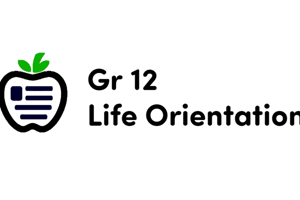Podcast
Questions and Answers
What is a primary function of human rights in democratic systems?
What is a primary function of human rights in democratic systems?
- To ensure government efficiency
- To promote social inequality
- To protect individuals from state abuse (correct)
- To limit individual freedoms
What type of democracy does the United States exemplify?
What type of democracy does the United States exemplify?
- Representative Democracy
- Direct Democracy
- Constitutional Democracy (correct)
- Participatory Democracy
Which of the following is NOT a fundamental right outlined in the Universal Declaration of Human Rights?
Which of the following is NOT a fundamental right outlined in the Universal Declaration of Human Rights?
- Right to life, liberty, and security of person
- Freedom of speech, assembly, and association
- Right to fair trial and due process
- Right to own property (correct)
Which type of democracy involves citizens making decisions directly through votes on laws and policies?
Which type of democracy involves citizens making decisions directly through votes on laws and policies?
What is a key benefit of human rights in democratic governance?
What is a key benefit of human rights in democratic governance?
Which type of democracy combines elements of different types of democracy to address specific social or political challenges?
Which type of democracy combines elements of different types of democracy to address specific social or political challenges?
What is an example of Participatory Democracy?
What is an example of Participatory Democracy?
What is a characteristic of Constitutional Democracy?
What is a characteristic of Constitutional Democracy?
Why are human rights essential for democratic governance?
Why are human rights essential for democratic governance?
What is an example of Direct Democracy?
What is an example of Direct Democracy?
Flashcards are hidden until you start studying
Study Notes
Human Rights in Democracy
- Inherent to democratic systems, human rights protect individuals from state abuse and ensure equal treatment under the law.
- Universal Declaration of Human Rights (1948) outlines fundamental rights, including:
- Life, liberty, and security of person
- Freedom from torture and slavery
- Right to a fair trial and due process
- Freedom of speech, assembly, and association
- Right to participate in government and free elections
- Human rights are essential for democratic governance, as they:
- Protect minority groups from oppression
- Ensure accountability and transparency in government
- Promote social justice and equality
- Foster a culture of respect for individual dignity
Types of Democracy
- Direct Democracy: Citizens make decisions directly through votes on laws and policies, often through referendums.
- Examples: Ancient Athens, Swiss Cantons
- Representative Democracy: Citizens elect representatives to make decisions on their behalf, often through parliamentary or congressional systems.
- Examples: United States, United Kingdom, Canada
- Constitutional Democracy: A system that combines representative democracy with a constitution that limits government power and protects individual rights.
- Examples: United States, Germany, India
- Participatory Democracy: Citizens engage actively in decision-making processes through public deliberation and consultation.
- Examples: Porto Alegre's participatory budgeting, Icelandic crowdsourced constitution
- Hybrid Democracy: A system that combines elements of different types of democracy, often to address specific social or political challenges.
- Examples: Hybrid systems in Africa, Asian democracies with strong executive powers
Human Rights in Democracy
- Human rights are inherent to democratic systems, protecting individuals from state abuse and ensuring equal treatment under the law.
- The Universal Declaration of Human Rights (1948) outlines fundamental rights, including:
- Right to life, liberty, and security of person
- Freedom from torture and slavery
- Right to a fair trial and due process
- Freedom of speech, assembly, and association
- Right to participate in government and free elections
- Human rights are essential for democratic governance, as they:
- Protect minority groups from oppression
- Ensure accountability and transparency in government
- Promote social justice and equality
- Foster a culture of respect for individual dignity
Types of Democracy
Direct Democracy
- Citizens make decisions directly through votes on laws and policies, often through referendums.
- Examples: Ancient Athens, Swiss Cantons
Representative Democracy
- Citizens elect representatives to make decisions on their behalf, often through parliamentary or congressional systems.
- Examples: United States, United Kingdom, Canada
Constitutional Democracy
- A system that combines representative democracy with a constitution that limits government power and protects individual rights.
- Examples: United States, Germany, India
Participatory Democracy
- Citizens engage actively in decision-making processes through public deliberation and consultation.
- Examples: Porto Alegre's participatory budgeting, Icelandic crowdsourced constitution
Hybrid Democracy
- A system that combines elements of different types of democracy, often to address specific social or political challenges.
- Examples: Hybrid systems in Africa, Asian democracies with strong executive powers
Studying That Suits You
Use AI to generate personalized quizzes and flashcards to suit your learning preferences.



